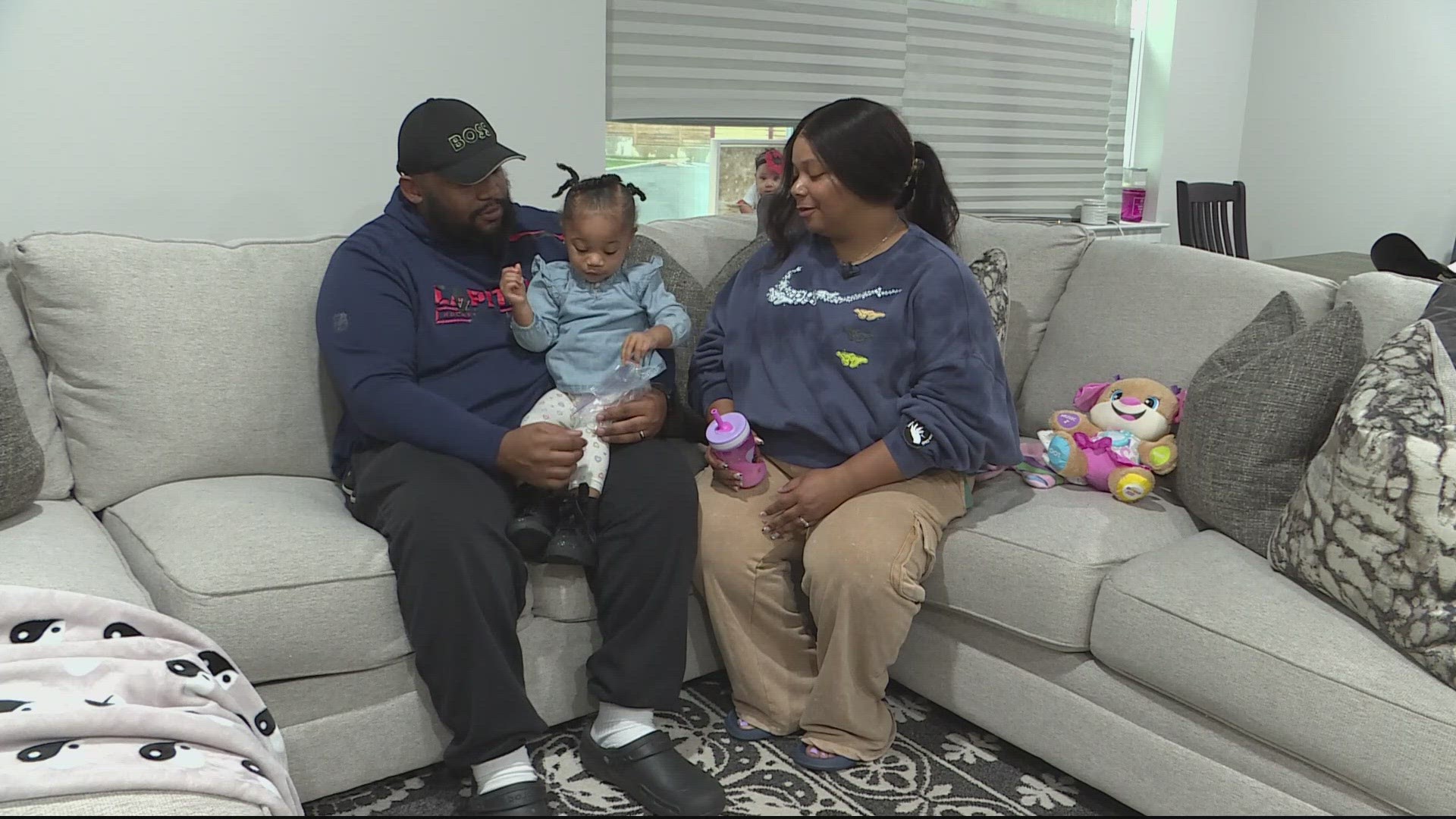WASHINGTON — For years, there has been a huge disparity in pregnancy-related death rates in D.C. Black mothers far outpace any other group.
Midwives at MedStar Washington Hospital Center realized to change that trend, they needed to extend their healthcare to their families' homes.
“We've learned a lot in the last couple of decades around the importance of social and environmental drivers of health," said Washington Hospital Center's Scientific Director, Dr. Loral Patchen. "And what that means, are sort of the variables in one's lives around the person that we tend to treat as distinct from providing medical services. And those variables actually account for about 70 to 80% of healthcare outcomes.”
That fact is something young mother of two Brittany Caldwell knows all too well.
“I lost my father while I was pregnant [with my daughter Asia]," Caldwell said. "So, I was grieving the loss of him. And then I had things going on, like with my job, and, you know, just taking off work and stuff like that, trying to get appointments…. I had an issue with my landlords. And it was just those are the things that put a lot of stresses on my pregnancy.”
This was before she lived in the home she now owns with her husband.
Caldwell didn't know where to turn until her midwife at Washington Hospital Center asked her how she was feeling and if she needed any other help. She decided to open up.
“I felt like I was drowning," she told her. "[But,] I felt like the midwives made it comfortable enough for me to share with them, like what I was going through… The midwives was like, 'no, you need a team.'"
So, her midwives reached out to Roxana Richardson over at Georgetown Law to add her to Caldwell's team.
“I honestly cannot see myself doing anything else," Richardson said.
She serves as the Managing Attorney for Georgetown Law's Perinatal Law Project. They partner with MedStar's Safe Babies Safe Moms program to help get parents like Brittany help beyond the hospital.
“[We help with] what we call health-harming legal needs," Richardson said.
The idea stemmed from dismaying statistics that show the national Black maternal mortality rate was nearly three times higher than white women's in 2021.
In D.C., the Mayor's Maternal Health Committee found that in 2019, Black mothers accounted for half of all births but 90% of pregnancy-related deaths.
Dr. Patchen said these rates stem from decades of policies that have segregated individuals, often Black communities, into areas that are environmentally and resource-poor.
"That takes generations to sort of address and evolve....so we look at this as well, some of those are things that we can't directly address as medical providers, but we can ask people questions about what is your environment and social context?" Dr. Patchen said. "And then how can we get you associated with someone that if you're in poor circumstances, and there is a legal solution who can help you with that?"
Many of those issues that this partnership has seen are with employment or evictions, both of which Caldwell was facing.
That's where Richardson and Georgetown Law stepped in.
“Roxy showed up to court for me and [my eviction notice] got dismissed," Caldwell said.
Since the partnership started two years ago, they have been able to help more than 160 patients.
“The powerful point about this program with respect to child health is that we're starting upstream," Dr. Patchen said. "So if we start working with mom early on, then maybe we can resolve the issue before the child's even here.”
For Richardson, it's especially personal.
“Now, also having my own pregnancy and my own complications, I do know what my clients are facing," she said. "And I love the work that I do to be able to have them see somebody that looks like them that is in their corner, that's on their side.”
Caldwell said she has seen that support from both her midwife and the law team.
Now, she advocates to her fellow mothers to seek out these resources if they need them.
"The help is out there," she said.

